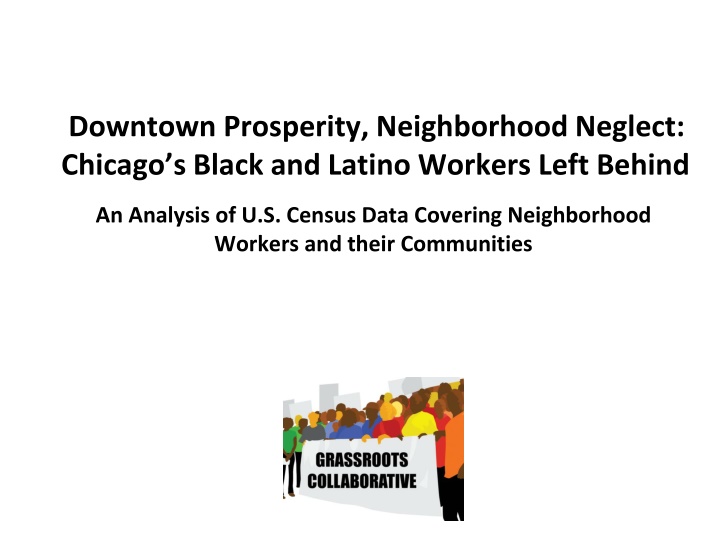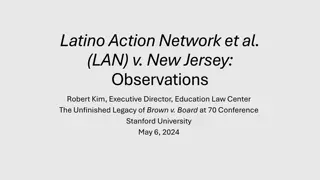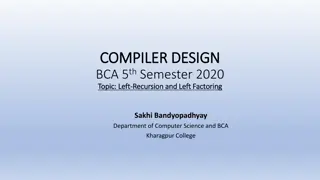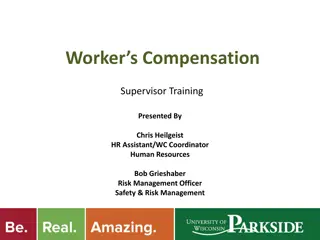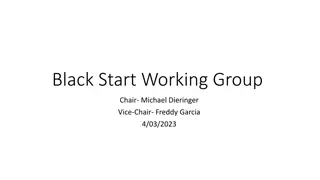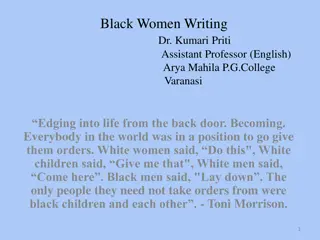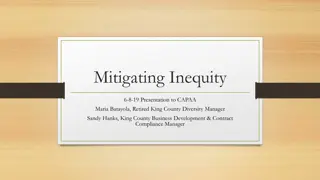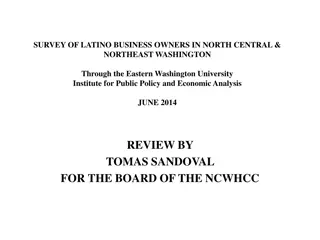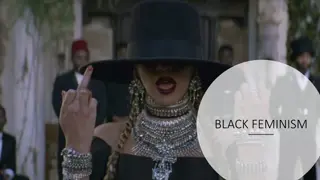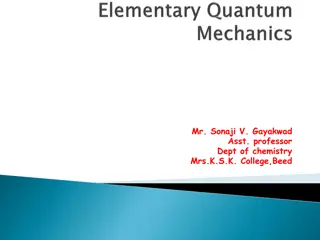Inequity in Chicago: Black and Latino Workers Left Behind
Analysis of U.S. Census data reveals disparity in job distribution between downtown and Chicago neighborhoods, impacting Black and Latino communities disproportionately. Recommendations include creating more local jobs, ensuring city residents benefit, and implementing living wage requirements and commuter tax to address economic inequity.
Uploaded on Sep 15, 2024 | 0 Views
Download Presentation

Please find below an Image/Link to download the presentation.
The content on the website is provided AS IS for your information and personal use only. It may not be sold, licensed, or shared on other websites without obtaining consent from the author.If you encounter any issues during the download, it is possible that the publisher has removed the file from their server.
You are allowed to download the files provided on this website for personal or commercial use, subject to the condition that they are used lawfully. All files are the property of their respective owners.
The content on the website is provided AS IS for your information and personal use only. It may not be sold, licensed, or shared on other websites without obtaining consent from the author.
E N D
Presentation Transcript
Downtown Prosperity, Neighborhood Neglect: Chicago s Black and Latino Workers Left Behind An Analysis of U.S. Census Data Covering Neighborhood Workers and their Communities
Job creation and re-location, subsidized by over $1.2 billion from Chicago taxpayers, disproportionately benefits non-Chicago residents. From 2002 to 2011, downtown economic activity brought a net gain of 52,404 jobs to downtown Chicago. However, only 1 of 4 of those new jobs was filled by a Chicago resident.
Jobs are moving to downtown and leaving Chicagos neighborhoods. Between 2002 and 2011, there was a net loss of 10,121 jobs across Chicago's neighborhoods. Economic opportunities for Chicago s low and middle wage earning families are disappearing from the city. From 2002 to 2011, Chicago added 129,054 new jobs paying $40,000/year and above to its job pool. During the same period, there was a loss of 182,938 jobs that paid below $40,000/year.
As Chicagoans experienced deepened job losses, unemployment grew disproportionately in communities of color. The ten zip codes with the highest unemployment are 70% or more Black or Latino, based on Census data estimates from 2007 to 2011.
Black and Latino families are at a higher risk of living in poverty than their white counterparts. From Census data gathered from 2007 to 2011, the percentage of Black families living in poverty was about 5 times higher than the percentage of white families living in poverty, while the percentage of Latino families was about 4 times that of white families.
Create good jobs for Chicagoans and ensure that all city residents benefit from downtown jobs. Require that entities receiving city public subsidies create jobs for Chicago residents, track that entity s fulfillment of that commitment, and claw back subsidies when they fall short. Create living wage requirements with all city subsidy programs. Implement a commuter tax to compensate the city for its public safety costs, transportation costs, infrastructure costs, and TIF subsidies, and ease the burden on Chicago-resident taxpayers, for whom the benefits of downtown job growth have been disproportionately small.
Make sure that subsidies lead to equity for all, not benefits for a small few. Implement "Robin Hood" porting to take TIF money from wealthy downtown areas and invest them into truly blighted communities. Develop a fixed formula that declares a surplus in prosperous TIF districts and returns a set portion back to local taxing bodies.
Ensure that tax dollars be spent on quality public services, not private developers and financiers. Call for a review of City of Chicago's and Chicago Public Schools' interest rate swap deals with Wall Street big banks, and renegotiate these agreements down from costs of $74.1 million and $36 million every year.
Improve conditions in struggling communities by raising standards for lowest-wage workers. Push for an increase in the city minimum wage to ensure that working families can share in the economic benefits of Chicago's status as a global city.
Reduce the tax burden on low and middle-income families while addressing Illinois structural deficit. Work with state officials to amend the Illinois constitution to allow a graduated income tax to relieve the disproportionate burden on low- and middle-income families, and create the revenue needed to support education and the critical safety net.
